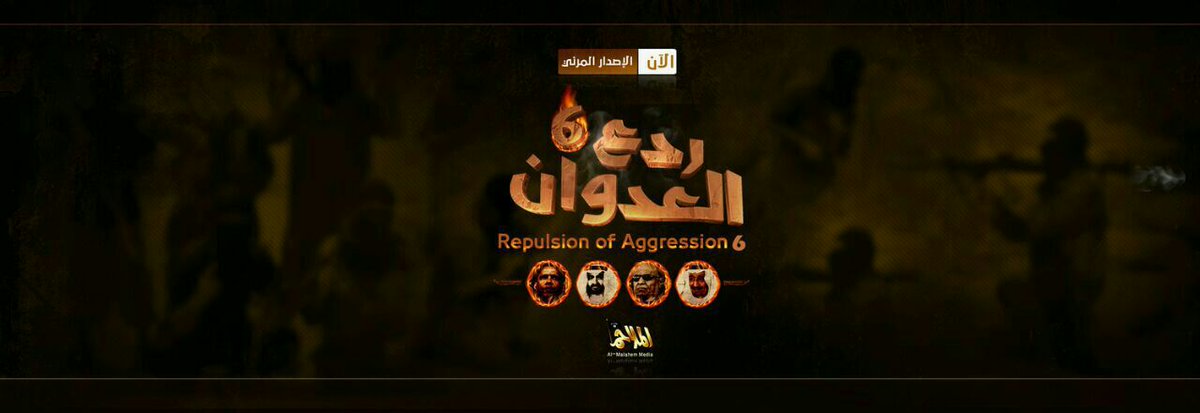
_______________
To inquire about a translation for this video message for a fee email: [email protected]
Year: 2016
al-Malāḥim Media presents a new video message from al-Qā’idah in the Arabian Peninsula: "Repulsion of Aggression #6"
New article from Ḥanīf al-Lībī: "Oh Soldiers of Majlis Shūrā [Thūwār Binghāzī].. We Are Waiting For Your Answer!"
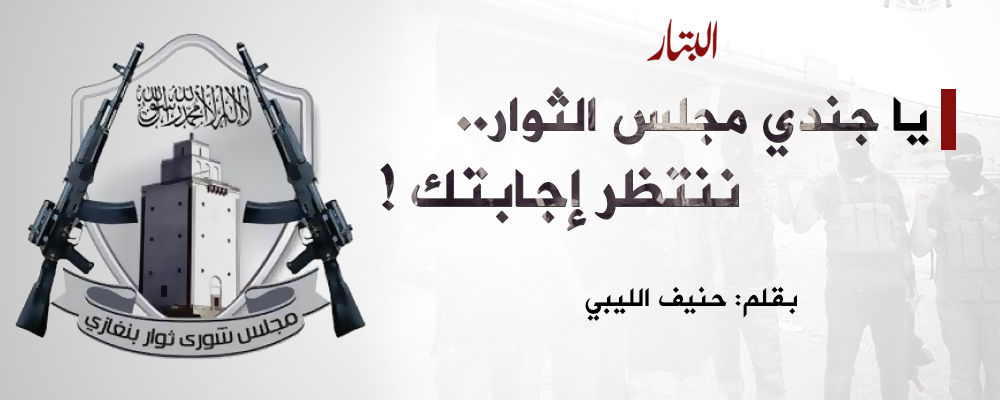
Click the following link for a safe PDF copy: Ḥanīf al-Lībī: “Oh Soldiers of Majlis Shūrā [Thūwār Binghāzī].. We Are Waiting For Your Answer!”
__________________
To inquire about a translation for this article for a fee email: [email protected]
New article from al-Maqālāt: "Remaining and Expanding: Remain a Forgotten History or Expand Into a Memorable Future?"
The Fatiheen (conquerors) who came from North Africa invaded the Iberian Peninsula to liberate the people from the oppressive Germanic Visigoths; with the light and the justice of Islam. When they conquered Al-Andalus they were constantly attacked from France. After the Fatiheen repeatedly repelled their attacks they decided to invade France, so that they could put a definitive end to these attacks. Unfortunately the Muslims were unable to conquer France. After this failed campaign it went downhill, until Al-Andalus was eventually retaken by the Visigoths –this re-conquering was known as the Reconquista.
This loss was not due to the small numbers and strength of the Muslims, they were stronger than the Franks in terms of military strength and men. The reason why the Muslims were unable to conquer France was due to other shortcomings. These same shortcomings that made it impossible for them to conquer France and eventually led to the fall of Al-Andalus, are the same shortcomings that weaken the Jihaad in Shaam. So let us open this page in Islamic history perhaps we could benefit from it inshaAllah.
The most important shortcoming was division between the Muslims. There were many conflicts between the Berbers and the Arabs during the failed campaign against France. These conflicts actually started right after the conquest of Al-Andalus. These armed conflicts and rebellions weakened the Muslims in Al-Andalus a great deal, they delayed the campaign against France and also caused the failure of its conquering, until it eventually caused the fall of Al-Andalus all together. The governor Ubayd ibn Al-Haytham Al-Kalabi from the Umayyad dynasty played an important role in these conflicts, he showed extreme tribalism. Until Allah sent one of the righteous Tabi’een (the generation that came after the Prophet –SalAllahu Alayhi wa Selam–) who managed to unite the Muslims somewhat. It was the commander Abdurrahmaan Al-Ghaafiqi.
The Muslims marched forth to conquer France under his command. But unfortunately the division and disputed between the Muslims started again once they captured large war spoils in Southern France. The Arabs said “We are the first Muslims so we deserve more.” While the Berbers said “We are a majority and we were the first ones who conquered Al-Andalus so we deserve more.” This went on and made the cooperation between them very difficult. We are seeing that the enemies of this Ummah and the hypocrites are trying to create a similar division between the Syrian Mujahideen and the foreign Mujahideen in Shaam, or between the so-called moderates and the extremists, etc.
Allah said “And obey Allah and His Messenger, and do not fall into disputes so that you do not weaken and lose your strength; and be patient. Indeed, Allah is with the patient.”
When the US invaded Afghanistan in 2001 they tried to create division between the Taliban and Al-Qaedah, between the Afghan Mujahid and the foreign Mujahid. They tried very hard to drive a wedge between the Mujahideen in Afghanistan. Their attempts however were futile. Now we see them repeat the same strategy in Syria. How many times did we hear the international politics repeat that this is a fight of the Syrians alone, a national struggle for a national state, and the media keeps repeating that foreign fighters in Syria cause nothing but trouble. They are trying to create division between the Syrian Mujahid and the foreign Mujahid, and the so-called moderate Mujahid and the extremist Mujahid, etc. While the countless of foreign Shia militias throughout the region in Syria stay unmentioned, even if they are designated terrorist organizations like Hizballah.
We should not base our loyalty on factions and nationalities. Before the Jihaad erupted in Syria our hearts were broken over the tens of thousands of innocent Muslims civilians slaughtered by the ruthless regime. However Allah united the Ummah through this trail, the Muslims carried arms and stood up as one body against this oppression. The blood of the many martyrs in Syria created an exceptional fertile ground for unity, Muslims fought together for a common and divine goal in a legendary and historic front. Unfortunately this unity was lost when we lost sight on that which united us in Syria in the first place; due to misplaced loyalty, partisanship, territoriality, authority, extremism and war spoils.
يا زماناً بَكَيْتُ منه فلما … صِرْتُ في غَيْره بَكَيْتُ عَلَيْهِ
Times which made me cry, when they changed .. I cried (out of nostalgia) for that time.
The division we are seeing in Syria at the moment is much like the division in Al-Andalus. Every group and faction wants authority and everyone wants to build his own exclusive state, according to his own views and methodology. The division in Al-Andalus was at one point so intense that Al-Andalus fell apart in more than 30 small kingdoms. There was a lot of corruption in these kingdoms, and this weakened the Muslims tremendously. It was also the first time in Islamic history that two Caliphates ruled over the Ummah; the Umayyad Caliphate in Cordoba and the Abbasid Caliphate in Baghdad. Until the Murabitun led by Yusuf ibn Tashafin put an end to this division. But not long after their rule they were fought and expelled by the Muwahidun; who were driven by sectarianism and extremism. After a couple of successful conquests by the Muwahidun, and despite their large numbers, they were defeated by the Christians in the disastrous Battle of Al-Uqba (Las Navas de Tolosa). This defeat meant the actual fall of Al-Andalus, and the bloody Inquisition that followed is well known to everyone.
Division, infighting, love for wealth, war spoils, authority and power, extremism; all of these shortcomings are diseases that weaken the Ummah and empower the enemies throughout history. These fatal shortcomings in Al-Andalus have been studied very well by the enemies of this Ummah. They learned from our history and use this knowledge against us. They have divided our Ummah into many submissive tyrannical client states, while unleashing an intense divide and conquer strategy against us. This is not hidden from anyone. Our enemies learn from our mistakes and history and use this knowledge against us, we should also learn from our history and our mistakes. As the Prophet (SallAllahu Alayhi wa Selam) said “A believer is not stung from the same hole twice.”
When the Muslims invaded France they dragged the heavy weight of the war spoils they gained behind them in Southern France. This was a fatal mistake once they reached the decisive confrontation known as the Battle of Poitiers. When the French tried to seize the spoils from behind, the Muslim army became divided as some of them hurried to protect their spoils of war. They lost the battle because of their love for wealth, and many of them were killed. The same mistake was repeated in Syria. We saw how some fought for oil fields, power plants, wheat fields and territory, while attacking the Mujahideen in their backs instead of defending the innocent civilians from the relentless massacres of the regime. They began to fight for authority and expansion; gaining territory and men for their own exclusive group became their most important priority, this even made them attack the liberated territories. Thousands of Mujahideen died due to these misplaced worldly objectives wrapped up in deviant theological justifications, while we witnessed the Jihaad in Syria weaken tremendously. More than two-thirds of Syria was liberated before the course of the battle and the balance of power turned in favor of the regime.
The Muslims in the Battle of Poitiers also began to rely on their numbers, instead of putting their trust in Allah. The Muslim army had reached fifty thousand men at that time. While the initial Fatiheen of Al-Andalus consisted of only twelve thousand men or less. We saw this same pride in Syria when some gained followers and conquered territories. While Allah warned us about this misplaced materialistic pride in the Quran. As He said “Indeed Allah helped you in many battle-fields and on the day of Hunaiyn, when you took pride in your great numbers, but they proved of no avail to you –for the earth, despite all its vastness, became narrow for you, so you turned back in retreat.”
Rather this materialistic way of thinking even reached the level that the number of followers and size of controlled territory was seen and used as evidence for the truthfulness and religious correctness of a group. The group that is closest to the Quran and Sunnah, even if it’s the weakest and smallest group, is the most truthful and correct group. It is not the biggest and most successful or powerful group. Allah even grants the oppressors power and temporary victories. Look at how big and powerful the armies of the enemies are, if this was evidence for their truthfulness we would not fight against them. Allah repeatedly explains to us in the Quran that the majority of people are on falsehood, and most of the Muslim armies throughout history were always in a minority –so large numbers are anything but evidence for truthfulness and religious correctness.
And if numbers and strength would have been evidence for their correctness, then losses and weakness would be evidence for their falseness. How many times did we hear the haughty slogan “remaining and expanding”. Even great Muslim civilization in Al-Andalus fell, and they did not face any destructive airpower at that time like we are facing today, rather the Muslim army in Al-Andalus had the upper hand in terms of strength and power when they were defeated. If you talk about Al-Andalus today it is as if you are talking about a dreamy fairytale, as if they have never really conquered and ruled for almost 800 years a word power at
New release from Abū al-Ashbāl al-Maghribī: "Occupiers Piled Upon Muslim Countries: What Does the Enemy Want From Libya?"

Click the following link for a safe PDF copy: Abū al-Ashbāl al-Maghribī: “Occupiers Piled Upon Muslim Countries: What Does the Enemy Want From Libya?”
_________________
To inquire about a translation for this release for a fee email: [email protected]
New video message from The Islamic State: "The Impenetrable Fortress – Wilāyat al-Khayr"

__________________
To inquire about a translation for this video message for a fee email: [email protected]
New statement from Anṣār al-Sharī’ah in the Arabian Peninsula: "Monthly Report of Operations in the Month of October 2016"
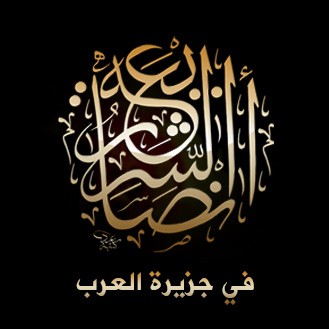
Click the following link for a safe PDF copy: Anṣār al-Sharī’ah in the Arabian Peninsula: “Monthly Report of Operations in the Month of October 2016”
________________
To inquire about a translation for this statement for a fee email: [email protected]
New video message from Majlis Shūrā Thūwār Binghāzī: "Messages From the Fortified Strongholds of the Front Lines"

_________________
To inquire about a translation for this video message for a fee email: [email protected]
New release from The Islamic State: "The Apostate Vote"
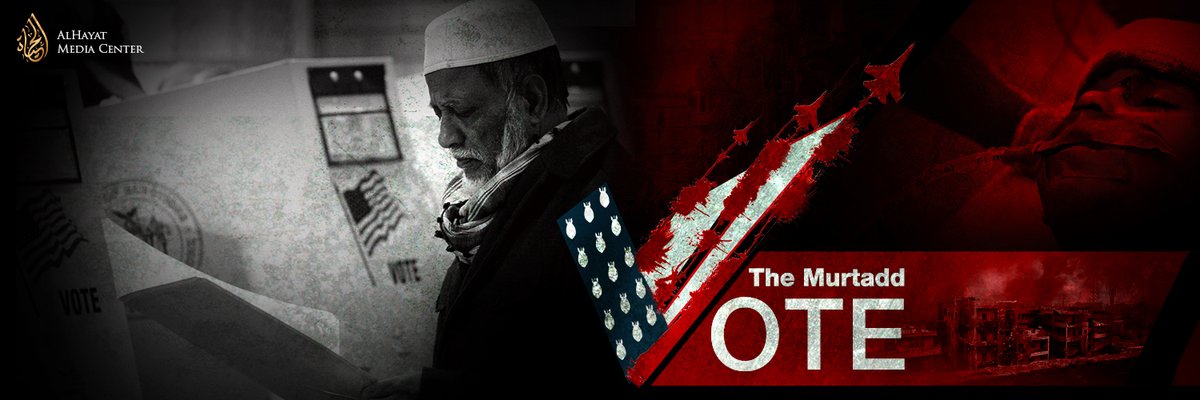
Click the following link for a safe PDF copy: The Islamic State: “The Apostate Vote”
_________________
New release from al-Fursān Media: “Martyrs Under the Banner of the Prophet Series: Martyrs of Khurāsān #9"
For prior parts in this martyrology series see: #8, #7, #6, #5, #4, #3, #2, and #1.
—
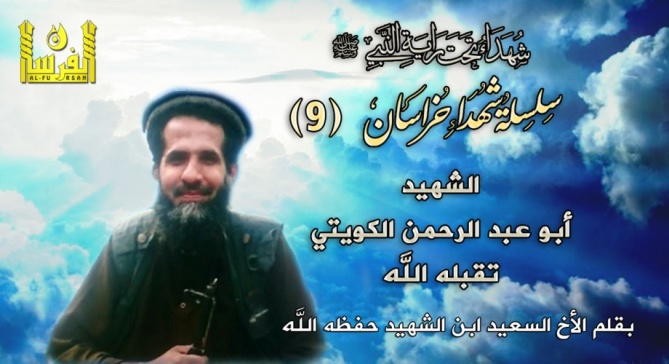
Click the following link for a safe PDF copy: al-Fursān Media: “Martyrs Under the Banner of the Prophet Series: Martyrs of Khurāsān #9″
________________
To inquire about a translation for this release for a fee email: [email protected]

